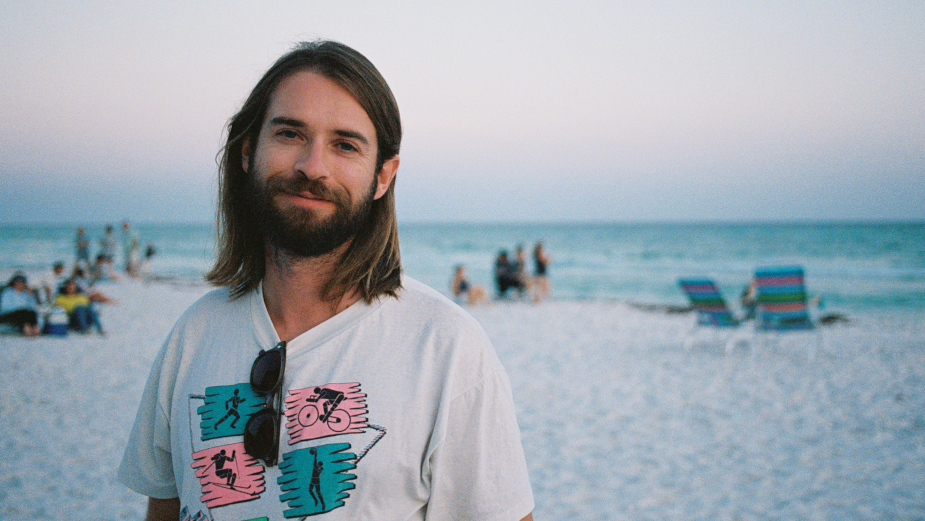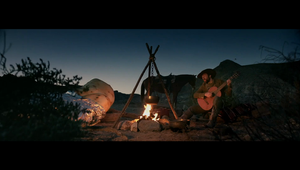
The Directors: Ryan Simpson

Ryan Simpson began his filmmaking career like many: making skateboard videos with his older brother and friends. Fast forward a decade and he’s become a multi-disciplined director and editor, lending his humanist and humorous approach to productions and edits worldwide. From coaxing performances from Ozzy and family for Spotify, to cutting Super Bowl spots for Carvana, his versatility provides first-rate perspective on projects large and small. He can also lay down a mean scratch VO.
Name: Ryan Simpson
Location: Los Angeles
Repped by/in: Stadium (USA / UK)
Awards: Cannes Lions, One Show Awards, Shorty Awards, New York Festivals Midas Awards, Ad Club Award, and Honor Roll K-12, duh.
LBB> What sort of scripts get you excited to shoot them?
Ryan> Ones with dynamics and tension. I love when there’s a pinch point or something unexpected. If you’re tapping a nerve, you’re generally getting into interesting creative territory and I believe that goes for most stories - from humour to human interest.
LBB> How do you approach creating a treatment for a spot?
Ryan> Four gallons of iced coffee.
LBB> If the script is for a brand that you're not familiar with/ don’t have a big affinity with or a market you're new to, how important is it for you to do research and understand that strategic and contextual side of the ad? If it’s important to you, how do you do it?
Ryan> Nothing exists in a vacuum, so I do think it is bare minimum to have a cursory knowledge of campaign rollout and end presentation, as well as the market in which you’re working. If learning about the strategy can also positively add to the concept’s creative strength and drum up some new ideas along the way, then good on ya. Learning and evolving is a good part of the gig.
LBB> For you, what is the most important working relationship for a director to have with another person in making an ad? And why?
Ryan> For commercial work, it’s agency and client. Everything else should fall into place as long as unity of vision is shared, which should always be the goal.
LBB> What type of work are you most passionate about - is there a particular genre or subject matter you are most drawn to?
Ryan> Volunteering with the humane society.
LBB> What misconception about you or your work do you most often encounter and why is it wrong?
Ryan> That I only volunteer at the humane society. I don’t know how this got started. I’m also interested in being a cost consultant.
LBB> Have you ever worked with a cost consultant and if so how have your experiences been?
Ryan> So, I am now a cost consultant. The last couple minutes on the job have been incredibly stressful, as I have little to no experience being a cost consultant.
LBB> What’s the craziest problem you’ve come across in the course of a production – and how did you solve it?
Ryan> Besides recently becoming a cost consultant with little to no experience, filming 53 individual videos in one day, with rear projection, dead fish, and a golden retriever for hotels.com with Captain Obvious comes to mind. In my experience, good planning means not only creating time and space for things to happen, but also saving the time for the unexpected. Sometimes that’s when the best stuff happens anyway. Thankfully, the team and I had great planning that day.
LBB> How do you strike the balance between being open/collaborative with the agency and brand client while also protecting the idea?
Ryan> It’s paramount to keep in mind that I’m not the sole author of the work. I’ve found that’s hardly ever the case in commercial work. Obviously, I have a lot of say in the translation of the idea when I am hired to do so, but unless a client is asking for something from scratch (which I love, but is rare), it’s likely that many rounds of thinking have gone into the concept before it even comes my way. So typically, I view my role as less about protecting the idea and more about guiding the distillation of the creative concept even further, to keep everyone finding new love in the work.
LBB> What are your thoughts on opening up the production world to a more diverse pool of talent? Are you open to mentoring and apprenticeships on set?
Ryan> I think it’s a beautiful and necessary thing and it’s the only way that new stories, new approaches, and new thinking come to light. So, let me know where I sign up to be Jordan Peele’s mentee.
LBB> Your work is now presented in so many different formats - to what extent do you keep each in mind while you're working (and, equally, to what degree is it possible to do so)?
Ryan> If you don’t consider the formats you’re working in, you’re in deep shit.
LBB> What’s your relationship with new technology and, if at all, how do you incorporate future-facing tech into your work?
Ryan> As new technology evolves, it’s great to not only use it to our benefit as creators, but also to know when a tool doesn’t fit the job. Refining our discretion and taste will be as important as any new tech advancements, if not more important. I do love incorporating graphics and VFX into my work when I can, so I imagine that will only become easier as AI and our use of it evolves.
LBB> Which pieces of work do you feel really show off what you do best – and why?
Ryan> The Ozzy and Wiz spots are some of my favs. I love honing in on dialog, adding a little storytelling, and injecting some energy with the audio and edit.















